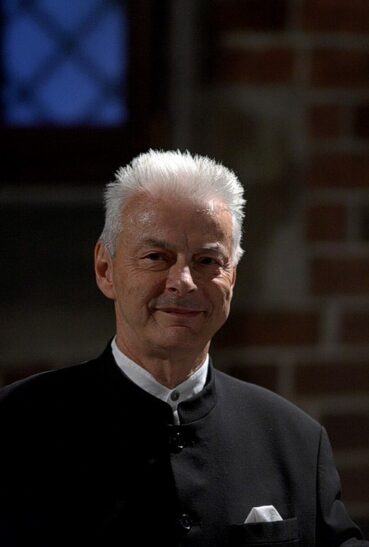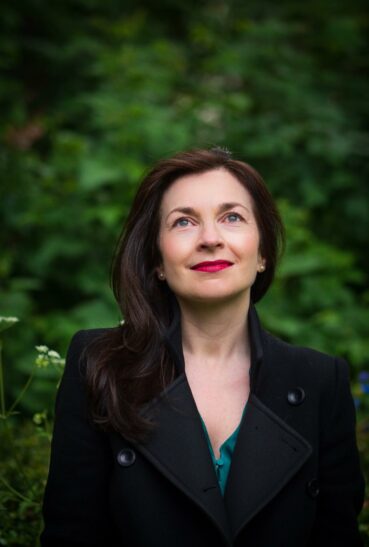HÄNDEL. BAROQUE MUSIC CONCERT
x
14 May 2023, 6 p.m.
The Royal Castle in Warsaw (The Great Assembly Hall)
Performers
Philippa Hyde | soprano
Jerzy Semkow Polish Sinfonia Iuventus Orchestra
Paul Esswood | conductor
Programme
Georg Friedrich Händel
Water Music: Suite No. 1, HWV 348, F major
Water Music: Suite No. 2, HWV 349, D major
Silete venti: Cantata for soprano and Orchestra, HWV 242
Royal Fireworks Music, HWV 351
Paul Esswood – photo Artist’s archive; Philippa Hyde – photo Artist’s archive
x
The 1717 performance of Handel’s Water Music was part of a carefully arranged political spectacle. The new German king (who established the House of Hanover) enjoyed little popularity among his subjects, and tried to win their favour by appearing in public as frequently as possible – one such appearance was his ceremonial cruise up the River Thames. An accompanying vessel carried an orchestra, whose repertoire included a suite specially-composed by Handel, who had served under George I when he was still Elector of Hanover. The suite quickly became popular, taking on a life of its own, and was performed as part of various celebrations, as well as being modified and extended by its composer multiple times. The Water Music consists of three suites which can either be performed together or can serve as the starting point for a variety of compilations.
While this particular composition originates from the early years of Handel’s London period, a relatively similar cycle – the Music for the Royal Fireworks, is a later work composed more than three decades later, in 1749. The suite was written to celebrate the Treaty of Aachen, which ended the protracted War of the Austrian Succession. A large-scale celebration in London’s Green Park was planned to mark the occasion, which involved scenery made by master craftsmen from Italy serving as the backdrop for a fireworks display (accompanied by a 100-cannon salute) and the performance of Handel’s outdoor composition, arranged to include a wide range of wind and bowed string instruments. The celebration was a spectacular disaster – the fireworks injured many attendees, and some of the decorations caught fire. The wonderful music is the only worthwhile remnant of that event, and it continues to be enjoyed in various forms to this day.
Both works, although characteristically cosmopolitan with regard to style, carry noticeable French influences, examples of which include their grandiose overtures and rhythms of the suite dances, in addition to elements of the Italian style, spiritually akin to the concerto grosso. Handel always considered himself a ‘supranational’ composer who wielded every compositional style recognised at the time with equal proficiency. An example of this is the religious, but not liturgical, cantata-motet Sliete Venti, one of Handel’s few works in Latin, composed in approx. 1724 for an unknown purpose. The motet, written for soprano and orchestra and containing elements of several older compositions, is a display of Italian-style vocal virtuosity (perhaps it was composed with Handel’s planned return to Italy in mind?), while the instrumental introduction is a reference to the French tradition. The music will be performed by Philippa Hyde, an award-winning British singer who has garnered popularity in her home country and abroad (including Poland). A graduate of the Royal Academy of Music, she collaborates with a number of ensembles, specialising in Baroque music and opera roles. She has performed with the Academy of Ancient Music, the Orchestra of the Age of Enlightenment, the Parley of Instruments, the Musicke Companye and the Harmonious Society of Tickle Fiddle Gentlemen, in addition to leading her own ensemble – Bloomsbury Baroque.
The concert will be conducted by the legendary British conductor Paul Esswood. He began his career in the early 1970s, originally as a countertenor, eventually becoming a major pioneer of historical performances of early music. He gained a great deal popularity after his participation in the famous recordings of Bach cantatas under the direction of Nikolaus Harnoncourt and Gustav Leonhardt, which were performed using historical instruments. Paul Esswood has participated in countless recordings and concerts across the globe, and is a long-time conductor and teacher. PSIO performed under his direction in 2019, which he summarises as follows: ‘I am happy to have had the opportunity to work with the wonderful Sinfonia Iuventus orchestra on Joseph Haydn’s The Seven Last Words of Christ. The performance was one of a kind, and I was delighted to be able to conduct this brilliant piece in the Church of the Holy Cross in Warsaw. [pmac]
Price of the tickets: 40 zł/1 seat
We kindly inform you that the pool of tickets for this event has already been sold out.
Organiser: Jerzy Semkow Polish Sinfonia Iuventus Orchestra
The organiser reserves the right to change the programme or the performers of the concert
Media patronage: TVP Kultura, Presto, polmic.pl


